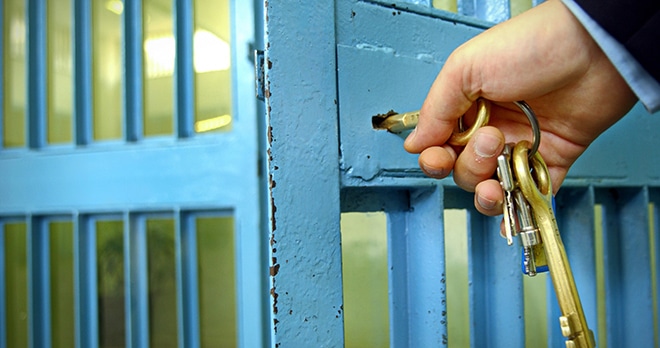Brain injury training for prison staff is vital, and studies support it

With many brain injuries resulting from assaults and domestic altercations, it is not unusual for prison inmates to suffer from cognitive and developmental disabilities. Economic studies carried out in 2016 have also shown that 60% of adults in prison have a history of brain injury, six times the rate of the general population, and that having a brain injury increases the risk of offending by at least 50%. This puts prison inmates in a vulnerable position as adjusting to prison life can be extremely difficult for both inmates suffering from the brain injury, and their peers.
The impact of brain injury on prison inmates
Being in the prison system and suffering with a brain injury has its own difficulties.
Common symptoms of brain injury include fatigue and lack of concentration, and in a prison environment this could be misconceived as laziness or lack of enthusiasm to partake in daily prison routines.
Additionally, people who have suffered a brain injury to the frontal lobe of the brain commonly suffer from cognitive, emotional and behavioural difficulties, which can affect crucial functions such as social behaviours and controlling emotions. This can have a huge impact on the quality of life for a prisoner.
Brain injury victims can also suffer from physical difficulties which are more hidden than obvious ones, such as headaches and migraines.
Brain injuries don’t always present themselves in obvious forms, so prison staff may be unaware of effects they can have on people. This results in negative consequences for the prisoners, both as a detainee and should they eventually transition back into society.
What the studies say
The Disabilities Trust carried out a study in 2019 which highlighted the link between traumatic brain injury and female prison inmates. It followed 173 offenders, 64% of whom had a history of brain injury, 62% of these offenders sustained the injury from domestic violence. For reference, a study of male offenders which followed found 47% of had suffered traumatic brain injury, 41% of which were sustained from fights.
During the study, the charity Brain Injury Linkworker Service provided support to the women in the prison with brain injury, and provided them with a “pathway” to manage the prison transition.
Following the 2019 study, various facilities in England have engaged with the Linkworker service, and it has helped not only female inmates but also prison staff gain a greater understanding of inmates who suffer with brain injury.
In the same year, the All Party Parliamentary Group for Actual Brain Injury published similar recommendations for prisons and probation services. They went further to recommend “routine, effective and standardised screening and assessment” for anyone entering into the Criminal Justice System, to identify any history of brain injury, in order to accommodate their needs whilst being detained.
The group recognised that sanctions and punishments rarely work for brain injury detainees, and that rehabilitation and coaching specific to the offender is much more effective when preparing them for life in prison and also for the transition back to normal life.
The group’s report recognised that in order to carry out the rehabilitation, there needs to be a greater understanding of brain injury throughout the entire Criminal Justice System, including UK prisons.
Moving forward
Following these reports the brain injury charity, Headway, has recently been awarded a NHS England contract to deliver brain injury awareness training to prisons and probation services across the country.
Headway has since released a press statement setting out their plans for how they will be using the funding. They confirmed they will be providing ‘train the trainer’ training alongside providing additional information and tools to all appropriate officers and staff.
Headway has also received funding to produce and issue “Brain Injury Identity Cards” to prisoners upon their release. This will help brain injury survivors not only explain they have a brain injury and the effects of the injury, but also enable police officers to easily identify brain injury survivors and ensure they act appropriately.
It is hoped that the scheme will not only help prison staff understand and accommodate brain injury prisoners, but will also help the offenders stay out of the Criminal Justice System once released. Addressing brain injury in prison directly does not only help improve the lives of those who are suffering with brain injury, but also helps with reducing crime, both domestically and publicly.